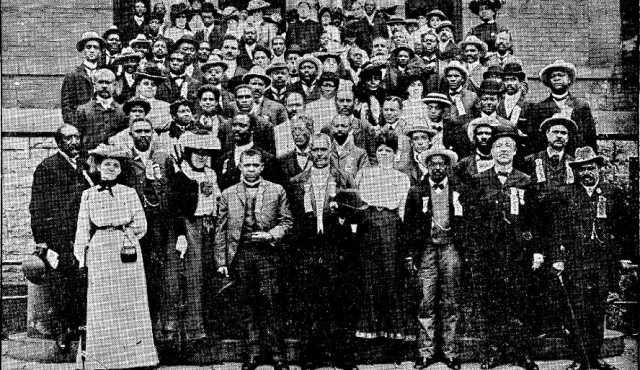
Influential is sometimes tough to define. Influence can be subjective. We decided to look at the Minnesotans who have had the greatest impact; the people born in the North Star State that have left an indelible and undeniable mark on the world.
Most influential doesn’t mean most famous, it means that their contributions are still incredibly important today and probably will remain so for the foreseeable future.
Of course, there is still plenty of room for discussion.
It was near impossible to narrow down to a list of 10. With some of the entries, lasting impact has already been established; with others (those still alive and/or working), we can only make our most educated guess as to whether or not their influence will last far into the future.
But these are the Minnesotans whose lives and life’s work have been the most influential both within and beyond our borders, leaving a mark on the world that will remain for years to come.
The 10 Most Influential Minnesotans
Bob Dylan
An obvious choice. We can already imagine the collective groan coming from readers about seeing Bob Dylan on yet another list of Minnesota’s greats, especially as he more or less snubbed his home state. But objectively, he is one of the most influential musicians, and people in general, to come from Minnesota (let alone the Iron Range). His songs have so far stood the test of time, but perhaps more importantly, were the impact his songs and words had on counter-culture movements of the 1960’s (and well beyond). Love him or hate him, his larger-than-life presence all across the world is undeniable.
William James and Charles Horace Mayo
The two brothers are linked simply because their achievements together trump anything they did on their own. Namely, found the Mayo Clinic, one of the most important medical institutions in the world. The Mayo now has more than 4,500 physicians, and scientists and over 57,000 allied health staff in its employ, and spends upwards of $660 million a year on research. But you don’t have to take our word for it, just ask the Dalai Lama, who still makes an annual stop for checkups.
F. Scott Fitzgerald
One of America’s literary greats, Francis Scott Key Fitzgerald’s lasting impact on the world of literature, and now film, with multiple versions of The Great Gatsby, a successful adaptation of The Curious Case of Benjamin Button, is staggering. Gatsby has been called more than once the closest thing to the true “Great American Novel” and it’s impact and words still resonate today. The Fitzgerald Society Conference, which just made its stop in St. Paul, is also a testament to the author’s enduring legacy. Much has been written as a ode to one of America’s great authors, and his prose will continue to be read, admired, and emulated for years to come.
Charles Schulz
Is there anyone who didn’t watch Charlie Brown Christmas growing up? Schultz helped turn Sunday comics into something greater than just a quick laugh: he crafted meaningful relationships in simple, recognizable scenarios with comment on the kindness and cruelty, and ultimate beauty, of youth and the human need for connection whether Schroeder with his piano or Linus’s Great Pumpkin. His comics, still circulating today and also released in book form and in countless collections, capture both the imagination, like Snoopy as the Red Baron, and the reality, as Charlie Brown discovers time and time again how unreliable people and the world can be.
Sinclair Lewis
Lewis ranks just below Fitzgerald in overall global influence. Main Street an American classic, giving a whole new meaning to the word busybody. But it isn’t just his incredible prose that earns him a place on this list: Lewis was also the the first American writer to receive the Nobel Prize in Literature. And with the discussions surrounding the current political climate, his later minor masterpiece It Can’t Happen Here, a satirical novel about a vehement nationalist who, after becoming elected president becomes a Hitler-style dictator in the United States, seems more fresh and relevant than ever (and book sales have reflected accordingly).
Frederick L. McGhee
Born a slave in Mississippi, and died a free man in St. Paul, Minnesota, McGhee was a contemporary of both Booker T. Washington and Frederick Douglass. He made his indelible mark on this country as a civil rights activist, helping form the Niagara Movement, one of the first national civil rights organizations that pushed strongly against racial segregation. He was also one of America’s very first African American lawyers, and led a high-profile career that eventually led toward politics: McGhee was chosen to be a presidential elector by the Republican party in Minnesota (he was replaced after protests by white Republicans, but remained a member of the party for years before switching to Democrat).
Prince
There isn’t much left to be said about Prince. It’s a shame to place him lower on this list than Bob Dylan, as Prince stayed loyal to this state in ways that would make Dylan blush, but Prince’s international influence is still nothing to scoff at. He was something like a mixed-race David Bowie – doing for art kids and minorities both what was still relatively unaccepted by much of the mainstream. Until it became the mainstream. Prince is a man who changed the world of music with his own unique sound in the most flamboyant and decadent of manners; a true legend that deserves the posthumous praise continuously heaped upon him.
James J. Hill
Minnesota’s Rockefeller brought rail to the region (and was the only railroad builder of the 19th century to do so without government subsidies) and influenced St. Paul and Minnesota from design to jobs to national economic influence. Hill’s Great Northern Railroad (BNSF today) not only connected Minnesota to the rest of the country, but helped shape the landscape of the state; maps were drawn around his railroads slicing across the countryside to mark the state permanently.
George Mikan
While Dave Winfield, Kirby Puckett, and Kevin Garnett all deserve honorable mentions for their contributions to the world of sports through Minnesota teams, no man has had more influence than Mikan. The Associated Press named him the Greatest Player of the first half of the 20th century, but more importantly, the rules of the game were forced to change to accommodate him. Thanks to Mikan, goal-tending rules, widening of the foul lane, and the shot clock were all introduced, tenements all still in use today. George Mikan redefined the sport of basketball. And, in a state where sports wins are hard to come by, the Minneapolis Lakers’ decade-long stretch of dominance will go down as the greatest in Minnesota history (unless the Lynx have anything to say about it). He was also instrumental in bringing a professional basketball team (the Timberwolves in 1989) to Minnesota for the first time since his Lakers left for LA in the 1950’s.
Honorable mentions:
As we said it was near impossible to make a list of 10, so here are a few others who deserve more than a passing nod:
We would be remiss if we didn’t mention Hubert Humphrey, whose political career was more or less monumental (enough to get his name on a now-razed football stadium, at the very least), Charles Lindbergh, whose trans-Atlantic flight is one of the greatest moments in history, and, of course, Garrison Keillor who isn’t ranked on the top 10 only because it’s unclear whether or not his radio work will have a lasting impact on society, especially society outside of Minnesota; though his nationally syndicated program A Prairie Home Companion has remained, even after his retirement.
Also, The Coen Brothers (filmmakers), Judy Garland (actress/singer/entertainer), Eugene McCarthy (politician), Walter Mondale (politician), Melvin Calvin (Nobel Prize winner for Chemistry), John Madden (athlete/television personality) all deserve mention as well.
















